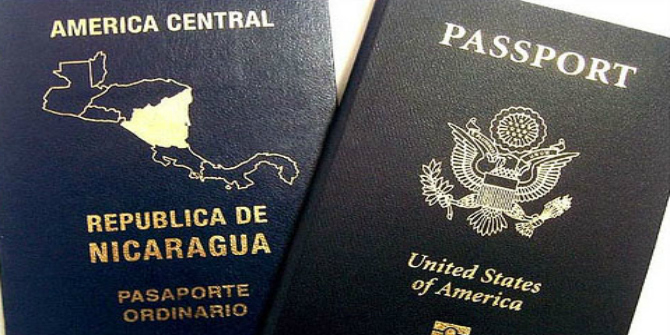 This book considers what drives lawyers’ dedication to work alongside and on behalf of some of the most despised members of society, and why it is so important that they do, and do so well. It will find a captive audience with anyone interested in criminal justice and the ethical standards that underpin it, writes Richard Hanstock.
This book considers what drives lawyers’ dedication to work alongside and on behalf of some of the most despised members of society, and why it is so important that they do, and do so well. It will find a captive audience with anyone interested in criminal justice and the ethical standards that underpin it, writes Richard Hanstock.
 How Can You Represent Those People? Abbe Smith and Monroe H. Freedman (eds.). Palgrave Macmillan. 2013.
How Can You Represent Those People? Abbe Smith and Monroe H. Freedman (eds.). Palgrave Macmillan. 2013.
“The ethical quandaries of defending [are not] the [most] important issues confronting the criminal justice system” (p. 10). This statement is as true in Britain as it is for its American author. Today, criminal barristers across England and Wales are going on strike. They will refuse to enter courtrooms and will instead meet outside courthouses to send a message to the government. That message is clear: the proposed fee cuts go too far, and are the product of a government recklessly unconcerned with the quality of advocacy in the British criminal justice system.
It is hoped that press coverage of the strike will counteract ‘misinformation’ about barristers’ earnings and generate public support for the plight of both defence and prosecution advocacy. It will also revive old questions, like what price justice? and aren’t we too soft on our criminals? – and, of course, how can lawyers represent those people anyway?
The latter is the perennial ‘dinner table question’ asked of every criminal lawyer. It is all the more pertinent in light of the war on fees waging today. Every lawyer has their own answer to that question – often several answers – and this unique book draws many of those answers together. It is a question that is answered publicly as well as privately, and is as much about personal motivation as it is about justifying one’s private motivations to others. This is a book about what it is that drives lawyers’ dedication to work alongside and on behalf of some of the most despised members of society, and why it is so important that they do, and do so well.
Although this is an American book written by American lawyers, the themes with which its authors engage are global in application. Issues of ethics are intelligently and articulately combined with stories of race, gender, class, age, sexuality, upbringing, anger, hypocrisy, prejudice, patriotism, pride, grief, forgiveness and more. Each essay is simultaneously biographical, autobiographical and a treatise on morality, as the authors illustrate general points of moral principle with specific real-world experiences drawn from the lives of the lawyers that wrote them and the clients they have represented. Reflecting on their work defending those facing the death penalty, Montross and Shapiro write “[i]t is truly our clients’ stories that keep us going” (p. 120). I can speak to the motivating power of this sentiment from my work as a capital casework intern in Texas. This book is full to bursting with such stories.

So broad is the spectrum of answers to the question posed that it is not possible fairly to summarise them all in this short review. Some resound with me as I consider my own answer – that we are all better than the worst thing we have ever done, yet we tend to label our criminals, and those accused of being criminals, as ‘others’ who have somehow ‘forfeited’ their basic human rights. Dostoevsky wrote that one can judge a society by how well it treats its prisoners: for a criminal lawyer such values are internalised and directed towards a career of speaking on behalf of those whose rights are in jeopardy. For David Singleton, “[t]he reason I come to work every day is not to make the community safer, but to be the voice of clients others would rather ignore” (p. 155). For Alice Woolley, “protecting human dignity isn’t just important, it is important to me, and a life spent doing that will be one I experience as worthwhile” (p. 208). Woolley emphasises the necessary subjectivity that makes a collection of essays, rather than a general textbook, the proper format for the present volume.
Babcock’s concern is that an inequality of arms between prosecution and defence is systemic and “wilfully defective” in the criminal justice system (p. 11), the “real question” instead being ‘how can [one] fail to defend?’. There has been extensive debate in recent weeks amongst criminal barristers about precisely this – how to reconcile our utmost dedication to the client with the desperate need for strike action. That the failure to defend on 6th January – albeit only for a few hours – causes such an ethical quandary for our barristers is itself a testament to the very values that are in jeopardy. The message from the Bar is not as selfish as it might at first appear. The concern is for the continuation of the same quality of work and ethical standards that are being exploited in further cutting back the resources that are available to defendants in particular. It is this context that makes this short and engaging volume so relevant to informed debate about the future of legal ethics. It will find a captive audience not only amongst lawyers new and old, but with anyone interested in criminal justice and the ethical standards that underpin it. Highly recommended.
————————————————
Richard Hanstock is a pupil barrister at Three Raymond Buildings. He has worked on death row appeals for the Texas Defender Service in Austin and now practices in criminal law and related disciplines. He is a Visiting Scholar at the Institute of Criminology, University of Cambridge, where he explores the criminology of the Internet. His current research, generously supported by the ESRC, focuses on sentencing in computer misuse cases. He has a LinkedIn profile, and blogs at ecrimeblog.com. Read more reviews by Richard.






